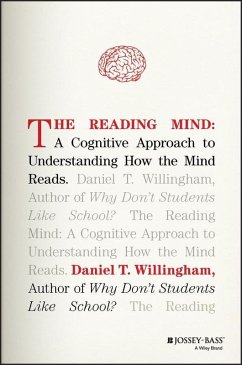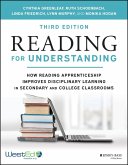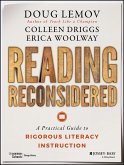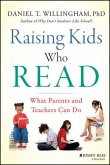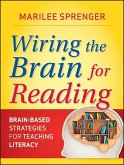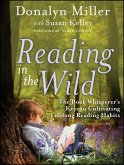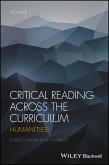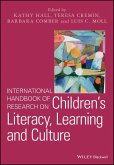A Map to the Magic of Reading Stop for a moment and wonder: what's happening in your brain right now as you read this paragraph? How much do you know about the innumerable and amazing connections that your mind is making as you, in a flash, make sense of this request? Why does it matter? The Reading Mind is a brilliant, beautifully crafted, and accessible exploration of arguably life's most important skill: reading. Daniel T. Willingham, the bestselling author of Why Don't Students Like School?, offers a perspective that is rooted in contemporary cognitive research. He deftly describes the incredibly complex and nearly instantaneous series of events that occur from the moment a child sees a single letter to the time they finish reading. The Reading Mind explains the fascinating journey from seeing letters, then words, sentences, and so on, with the author highlighting each step along the way. This resource covers every aspect of reading, starting with two fundamental processes: reading by sight and reading by sound. It also addresses reading comprehension at all levels, from reading for understanding at early levels to inferring deeper meaning from texts and novels in high school. The author also considers the undeniable connection between reading and writing, as well as the important role of motivation as it relates to reading. Finally, as a cutting-edge researcher, Willingham tackles the intersection of our rapidly changing technology and its effects on learning to read and reading. Every teacher, reading specialist, literacy coach, and school administrator will find this book invaluable. Understanding the fascinating science behind the magic of reading is essential for every educator. Indeed, every "e;reader"e; will be captivated by the dynamic but invisible workings of their own minds.
Dieser Download kann aus rechtlichen Gründen nur mit Rechnungsadresse in A, B, BG, CY, CZ, D, DK, EW, E, FIN, F, GR, HR, H, IRL, I, LT, L, LR, M, NL, PL, P, R, S, SLO, SK ausgeliefert werden.

